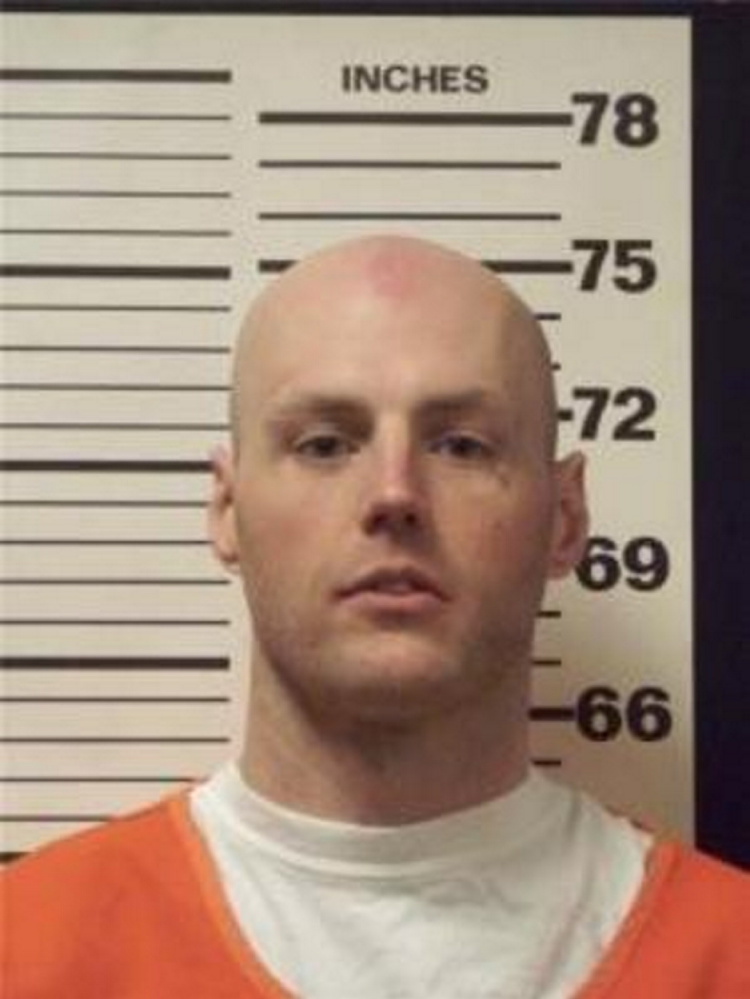AUGUSTA — The man found not criminally responsible for a 1999 fire that caused more than $2 million in damage at the Skowhegan State Fairgrounds and was later convicted of damaging Riverview Psychiatric Center property has won court permission to live in a group home once he finishes serving his most recent prison term next month.
A transition plan was approved Friday for Charles D. Miles, now 36. He has been serving a sentence for damaging hospital property and threatening to harm staff.
His release date from the Maine State Prison, where he has been housed in the Intensive Mental Health Unit, is late June, and he will be returned to the custody of the commissioner of the Department of Health and Human Services.
Normally that would place him back at Riverview Psychiatric Center, the state forensic hospital, where he has spent time on and off since 1999. Instead, he is expected to move directly into a group home.
Miles, previously of Skowhegan, confessed on April 1, 1999, to starting the March 30 fire that spread to three buildings at the fairgrounds and took firefighters nearly 15 hours to put out.
Miles was charged with arson, criminal mischief and burglary in connection with what the Morning Sentinel at the time called “a destructive March 30 rampage through Skowhegan that began at the fairgrounds.” He also broke into a bank, overturning files and doing other damage, broke windows and a door at North Elementary School and broke into a North Avenue house after the fire.
Miles was brought to the Capital Judicial Center on Friday and escorted into the courtroom, where he remained for less than five minutes. He wore a bright orange jail uniform, was handcuffed and shackled, and two Kennebec County sheriff’s deputies stood near him. In contrast, other petitioners seeking a judge’s approval for modifications in their treatment, housing, and free time were all in street clothes and sat outside the courtroom with treatment providers and family members.
Under the order approved by Justice Donald Marden, Miles will be permitted to live in a group home where the staffing ratio is one staff person to each client seven days a week around the clock.
The order was negotiated between Assistant District Attorney David Spencer and Miles’ attorney, Harold Hainke. The provisions also were recommended by hospital treatment staff at Riverview.
“Based on observation and progress to date, it appears that Miles is an appropriate candidate for a structured release to the community,” says a portion of a clinical summary by his doctors. “Many of the issues that remain are related to institutional practice and familiarity. For him to progress further, a community-based experience with opportunities to use existing skills in a more ‘normal’ context is indicated.”
The judge’s order is specific: “While in the group home, his 1:1 staff will help with his activities of daily living and coach him to make a schedule, go for walks, go shopping, go to the movies, get to an exercise facility and work a little at an outdoor job.”
Miles is to be permitted to use a laptop, with monitoring software, and access to music and a printer to print out his poetry.
The order also says that Miles needs to understand that Internet and music access is not available to him if he has to be readmitted to Riverview.
The hospital report indicates that Miles has spent most of his life in institutions.
“Psychiatric issues, possible residual effects of brain injury and developmental issues have compromised and influenced Miles’ relationships with others and his adaptation to his environment,” the report says.
It says he has not harmed anyone: “He has destroyed property but quite literally had gone out of his way to avoid harming others when injuring himself or damaging items.”
Miles was previously sentenced to 96 months in federal prison for making threats against the president in the early 2000s related to his anger about a war.
The hospital also recommends that Miles’ “progression and privilege level should remain dependent upon his participation in mental health treatment, engagement with his treatment team and his ability to maintain safety for himself and those around him.”
Copy the Story Link
Send questions/comments to the editors.




Success. Please wait for the page to reload. If the page does not reload within 5 seconds, please refresh the page.
Enter your email and password to access comments.
Hi, to comment on stories you must . This profile is in addition to your subscription and website login.
Already have a commenting profile? .
Invalid username/password.
Please check your email to confirm and complete your registration.
Only subscribers are eligible to post comments. Please subscribe or login first for digital access. Here’s why.
Use the form below to reset your password. When you've submitted your account email, we will send an email with a reset code.